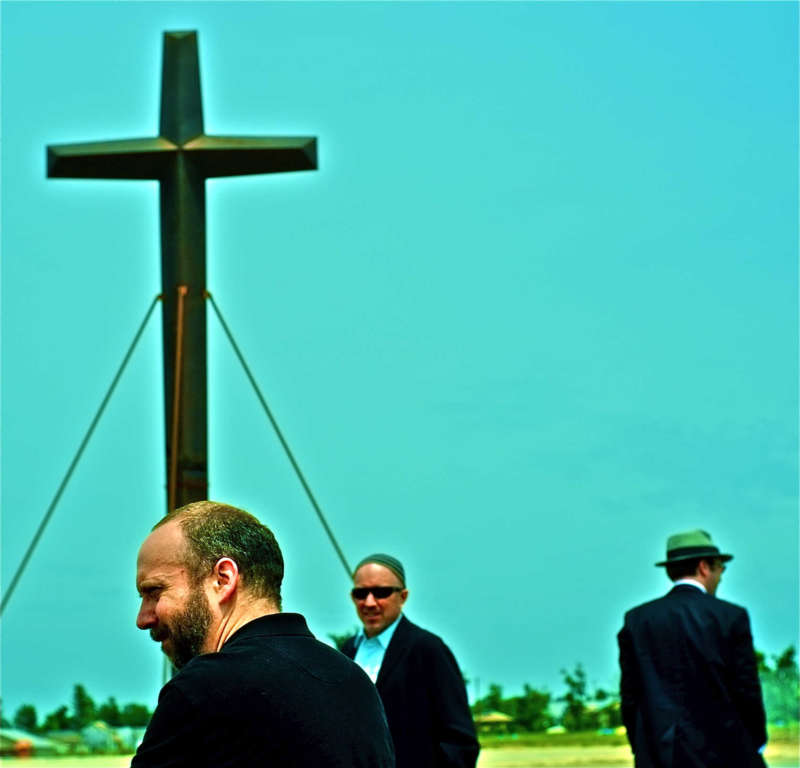Open to Public
Addiction Performance Project: Nantucket
Free Event
Theater of War Productions works with acclaimed actors to present dramatic readings of seminal texts as a framework for engaging diverse communities in powerful discussions about pressing issues of public health and social justice. The company is thrilled be returning to Nantucket with two projects aimed at generating crucial dialogue about the impact of substance abuse, addiction, and the opioid epidemic on individuals, families, and communities.
The Addiction Performance Project presents dramatic readings of scenes from Eugene O'Neill's classic American play Long Day's Journey into Night as a catalyst for guided audience discussions about substance abuse and addiction as they affect individuals, caregivers, families, and communities.
Eugene O'Neill's Long Day's Journey into Night depicts the struggles of Mary Tyrone, a woman who abuses prescription painkillers and relapses into full-blown morphine addiction. It is also the story of how Mary's addiction rips her family apart, as her morphine use slowly becomes apparent to her husband and two sons, who struggle with alcohol abuse and addiction. It is widely believed that Long Day's Journey into Night is an autobiographical play, and that the troubled characters in it are based on members of O'Neill's own family, including his mother, Ella, who struggled with morphine addiction for most of her life. In his dedication of the play to his wife Carlotta, O'Neill states that it is a "play of old sorrow, written in tears and blood," and that he wrote it "with deep pity and understanding and forgiveness for all the four haunted Tyrones." O'Neill wrote the play for personal reasons, and the Addiction Performance Project present the plays to diverse audiences to elicit personal responses and candid discussion about addiction.
Featuring performances by Debra Winger (Terms of Endearment, Rachel Getting Married), Arliss Howard (Full Metal Jacket, Mank), Babe Howard (Lapsis, With/In), and Marjolaine Goldsmith (Company Manager, Theater of War Productions).
Adapted, directed, and facilitated by Bryan Doerries.
Co-presented by Theater of War Productions and Dreamland Film, Theatre & Cultural Center. This program is made possible by a grant provided by the Town of Nantucket.
This free, public, live hybrid event will take place on Zoom Webinar, broadcast from Nantucket. These events will be captioned in English on Zoom. If you choose to join us online, this event can be accessed on personal devices. The event Zoom link will be distributed via email and available to registered attendees starting two days prior to the event.
To register to attend in-person please visit: http://www.nantucketdreamland.org
All of Theater of War Productions' events follow the same format:
- The performers will read the text.
- Community panelists will kick off the discussion with their gut responses to what resonated with them across time.
- We will open the discussion to the audience, facilitated by Bryan Doerries. To participate in the discussion online, please raise your hand using the button at the bottom center of the screen. If called upon, please accept the invitation to be promoted to speak and you will be visible and heard by the entire audience for the duration of your comments. If you would prefer not to be seen, please disable your video.
About the play
-
Long Day's Journey Into Night by Eugene O'neill
Eugene O'Neill's Long Day's Journey into Night depicts the struggles of Mary Tyrone, a woman who abuses prescription painkillers and relapses into full-blown morphine addiction. It is also the story of how Mary's addiction rips her family apart, as her morphine use slowly becomes apparent to her husband and two sons, who struggle with alcohol abuse and addiction. It is widely believed that Long Day's Journey into Night is an autobiographical play, and that the troubled characters in it are based on members of O'Neill's own family, including his mother, Ella, who struggled with morphine addiction for most of her life. In his dedication of the play to his wife Carlotta, O'Neill states that it is a "play of old sorrow, written in tears and blood," and that he wrote it "with deep pity and understanding and forgiveness for all the four haunted Tyrones." O'Neill wrote the play for personal reasons, and the Addiction Performance Project present the plays to diverse audiences to elicit personal responses and candid discussion about addiction.
Cast Members
-

Debra Winger
-

Arliss Howard
-

Marjolaine Goldsmith
-

Babe Howard
Explore Projects
-
 Natural DisasterBook of Job
Natural DisasterBook of JobThe Book of Job Project presents dramatic readings by acclaimed actors of The Book of Job as a catalyst for powerful, guided conversations about the impact of natural and manmade disasters upon individuals, families, and communities.
-
 Political ViolenceActs of Violence
Political ViolenceActs of ViolenceActs of Violence presents scenes from Seneca's Thyestes, a Roman tragedy that was written during the gruesome reign of Nero, as a catalyst for town hall discussions about the impact of political violence upon individuals, families, caregivers, health and human rights advocates, communities, and nations.
-
 Addiction & Substance AbuseAddiction Performance Project
Addiction & Substance AbuseAddiction Performance ProjectDesigned to raise awareness about opiate addiction and alcohol abuse, the project is intended to promote dialogue about helping those who are struggling with addiction.